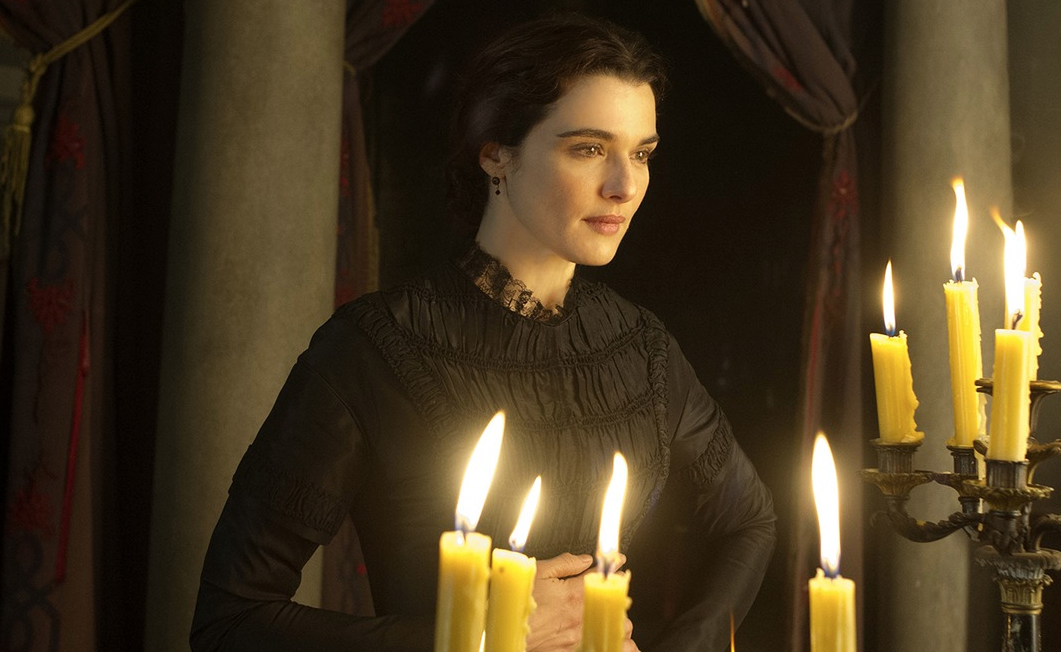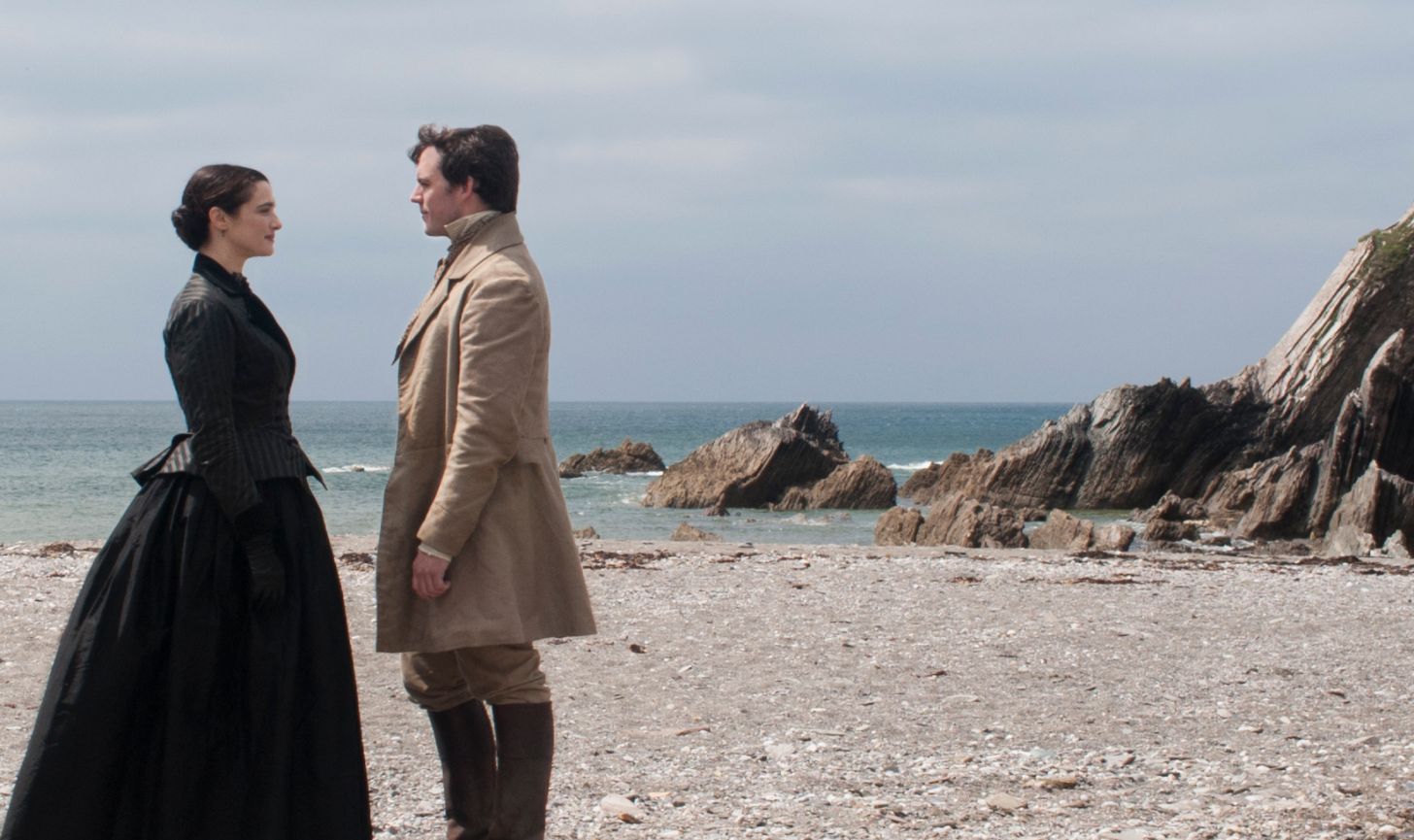Daphne du Maurier’s fragrant flavour of gothic romance has always been ripe for film, as no less than Alfred Hitchcock has adapted no fewer than three of her novels. The first two instances were more typical examples of her work (Jamaica Inn and the Oscar-winning Rebecca), while the latter case was one of her outliers (The Birds). Roger Michell is no Alfred Hitchcock, something that even he, and even his mum, would likely admit. But Michell does show some of Hitchcock’s interest in technique, in where to place the camera and what information to reveal when, even if it results in merely a handsome and diverting film, not something truly engrossing.
The gothic romance du jour is between Philip Ashley (Sam Claflin) and his cousin Rachel (Rachel Weisz), though it doesn’t start out that way. In fact, at first, Philip has a near-murderous desire for revenge against his cousin – a term used to encompass all degrees of distant relation – whom he has not yet met. She married his beloved other cousin, Ambrose, and may have been responsible for bringing about the latter’s untimely demise.

Ambrose, who had looked after the younger Philip like a father since he was orphaned at age seven, had been in poor health and been wintering in Florence to combat his maladies. There he met Rachel, and initially seemed to swoon over her in his letters to Philip. But as the letters grew increasingly dire and gave voice to suspicions about the motives of his bride, Philip hurried to Ambrose’s rescue in Italy, only to find that Ambrose had already passed and Rachel had departed their villa for points unknown.
Returning to England in a foul state of despair, Philip gets his chance for revenge when Rachel docks at a nearby port and announces her imminent arrival. He’s prepared for the very incarnation of evil, but instead finds a charming, beautiful young woman who seems both playful and unassuming, not the schemer he had envisioned. Quickly scuttling his plans for vengeance, he falls under her spell and imagines becoming her husband, regardless of the pressing claim of another love interest, Louise (Holliday Grainger), the daughter of his current guardian (Iain Glen). Despite Rachel’s ongoing entanglements with a mysterious Italian named Rainaldi (Pierfrancesco Favino), not to mention potential motivations related to the inheritance of Ambrose’s estate, he presses forward like a man under a spell.
Performance is also a strength – to a point. Sam Claflin does well enough with the material, but he’s a bit like an angry version of Hugh Grant, which is sometimes distracting. As he just played a quadriplegic in last year’s teen weepie Me Before You, his pedigree does not seem quite up to the material. The same cannot be said of Rachel Weisz, an Oscar winner who also happens to share a name with the character she plays. Her performance is purposefully ambiguous to complicate our understanding of the character, and some of her choices are quite profound. But perhaps we needed a bit more of an assist to tell us what we’re really supposed to think about this woman.

Even after it’s been sort of proven that a tumour on Ambrose’s brain was making him paranoid, Rachel still seems like she might be plotting against Philip, which acts as a kind of circumstantial evidence of malfeasance toward her dead husband. Yet Weisz rarely gives us more than a flicker of this darker side, and the flicker is not enough to sustain our curiosities. She needed to play the ambiguity a bit more boldly, if that makes sense.
Whether the things that keep My Cousin Rachel from fully connecting are in the original source material, or Michell’s interpretation of it, is a bit hard to determine. That’s a paradox built into one of the goals of the novel, which is to keep us uncertain how guilty Rachel really is, and of what. The film even ends with a question that can be paraphrased as “Did she or didn’t she?” Those who love du Maurier’s novel may find that Michell has effectively tantalised us with the part of this mystery that remain unknowable. Those who haven’t read it may wish for a bit more certitude.